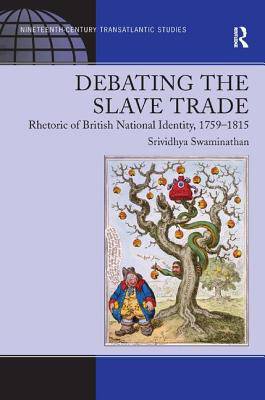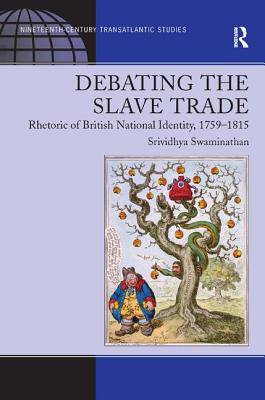
- Retrait gratuit dans votre magasin Club
- 7.000.000 titres dans notre catalogue
- Payer en toute sécurité
- Toujours un magasin près de chez vous
- Retrait gratuit dans votre magasin Club
- 7.000.0000 titres dans notre catalogue
- Payer en toute sécurité
- Toujours un magasin près de chez vous
Debating the Slave Trade
Rhetoric of British National Identity, 1759-1815
Srividhya Swaminathan
Livre relié | Anglais
305,45 €
+ 610 points
Format
Description
Srividhya Swaminathan examines contemporary books, pamphlets, and literary works to trace the changes in rhetorical strategies utilized by both sides of the abolitionist debate. Suggesting that the debate to abolish the slave trade helped to construct a British national identity and character, she reads the arguments of pro- and anti-abolitionists as a series of dialogues among diverse groups at the center and peripheries of the empire.
Spécifications
Parties prenantes
- Auteur(s) :
- Editeur:
Contenu
- Nombre de pages :
- 262
- Langue:
- Anglais
Caractéristiques
- EAN:
- 9780754667674
- Date de parution :
- 11-09-09
- Format:
- Livre relié
- Format numérique:
- Genaaid
- Dimensions :
- 156 mm x 234 mm
- Poids :
- 544 g

Les avis
Nous publions uniquement les avis qui respectent les conditions requises. Consultez nos conditions pour les avis.






